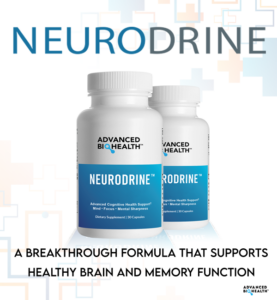Can cholinesterase inhibitors help with alzheimer’s and dementia?

Cholinesterase inhibitors are a class of drugs that are commonly used to treat Alzheimer’s disease and dementia. These drugs work by increasing the levels of acetylcholine in the brain, which is a neurotransmitter that is essential for memory and cognitive function.
Cholinesterase inhibitors
Cholinesterase inhibitors (CIs) are a class of drugs that are commonly used to treat Alzheimer’s disease and other forms of dementia. CIs work by inhibiting the action of acetylcholinesterase, an enzyme that breaks down the neurotransmitter acetylcholine. This results in increased levels of acetylcholine in the brain, which is thought to be beneficial in treating the symptoms of Alzheimer’s and other forms of dementia.
There is some evidence that CIs can improve cognitive function in people with Alzheimer’s disease, although the effect is generally mild and may only be seen in some people. There is also evidence that CIs can slow down the progression of Alzheimer’s disease, although again the effect is generally mild.
If you or a loved one has been diagnosed with Alzheimer’s disease or another form of dementia, your doctor may well recommend trying a cholinesterase inhibitor. These drugs can offer some benefits, but it’s important to remember that they will not cure Alzheimer’s disease or stop its progression. They may also cause side effects such as nausea, vomiting, and diarrhea.
Alzheimer’s and dementia
There is no known cure for Alzheimer’s or dementia, but there are treatments that can help to manage the symptoms. One type of treatment that has shown some promise is cholinesterase inhibitors.
Cholinesterase inhibitors are drugs that work by preventing the breakdown of acetylcholine. Acetylcholine is a neurotransmitter that is important for memory and cognition. When levels of acetylcholine are too low, it can lead to the cognitive decline seen in Alzheimer’s and dementia.
There are several cholinesterase inhibitors available, and they all seem to be effective in improving cognitive function in people with Alzheimer’s or dementia. These drugs do not work for everyone, but they may help to improve quality of life for those who do respond to them.
How cholinesterase inhibitors help with alzheimer’s and dementia
Cholinesterase inhibitors are a class of drugs that are used to treat Alzheimer’s and dementia. These drugs work by inhibiting the action of acetylcholinesterase, an enzyme that breaks down acetylcholine. Acetylcholine is a neurotransmitter that is involved in memory and learning. By inhibiting the action of acetylcholinesterase, cholinesterase inhibitors increase the levels of acetylcholine in the brain, which can help to improve memory and cognitive function.
There are four cholinesterase inhibitors that are approved by the FDA for the treatment of Alzheimer’s disease: donepezil (Aricept), rivastigmine (Exelon), galantamine (Razadyne), and tacrine (Cognex). These drugs are generally well-tolerated, but they can cause side effects such as nausea, vomiting, diarrhea, and headache. Cholinesterase inhibitors may also interact with other medications, so it is important to talk to your doctor or pharmacist about any potential drug interactions before starting treatment.
Side effects of cholinesterase inhibitors
Cholinesterase inhibitors are a class of drugs that are commonly used to treat Alzheimer’s disease and dementia. These drugs work by inhibiting the breakdown of acetylcholine, a neurotransmitter that is important for memory and cognition.
While cholinesterase inhibitors can be effective in treating Alzheimer’s disease and dementia, they can also cause a number of side effects. The most common side effects include nausea, vomiting, diarrhea, constipation, loss of appetite, weight loss, and fatigue. Less common side effects include muscle cramps, irritability, and insomnia. In rare cases, cholinesterase inhibitors can cause seizures or heart rhythm abnormalities.
If you are considering taking a cholinesterase inhibitor for Alzheimer’s disease or dementia, it is important to discuss the potential risks and benefits with your doctor.
Conclusion
There is still much unknown about alzheimer’s and dementia, but there is some evidence that cholinesterase inhibitors can help. These drugs work by increasing levels of acetylcholine, which is a neurotransmitter involved in memory and learning. While they don’t work for everyone, they may be worth considering if you or a loved one are struggling with alzheimer’s or dementia.







